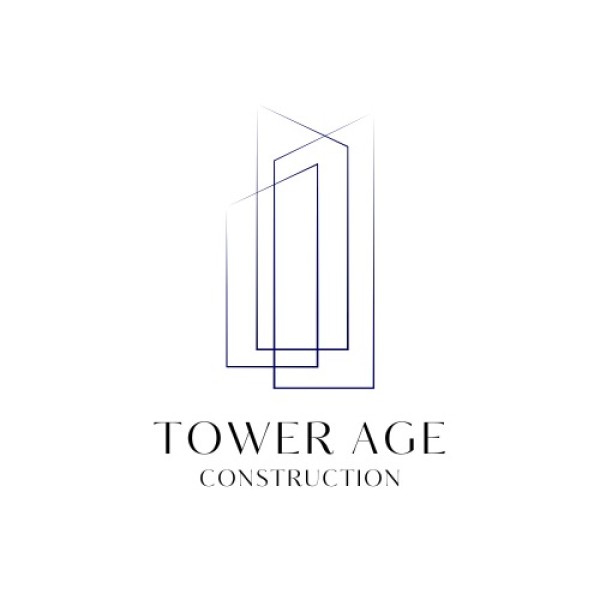Extension Builders in Ealing
Welcome to EcoHome Plus Ltd, your premier choice for top-notch tradespeople services in Acton Green and the surrounding areas of Hounslow... read more »
Welcome to Impress Europe Ltd, your go-to construction experts in Chipping Barnet, Barnet, Lo... read more »
Cosy Homes Property Maintenance LTD, based in Tolworth, is your premier choice for builders, property refurbishment, lof... read more »
Welcome to ACJ Construction Slough Ltd, your premier choice for construction and civil engineering services in Slough and the surrounding... read more »
Homes & Gardens Building & Design Ltd stands as a beacon of excellence in the construction and renovation indust... read more »
Rama Construction Ltd, proudly based in Chalvey, is your premier choice for all construction needs throughout Berkshire.... read more »
Welcome to The Likeable Craftsmen, your go-to experts for all things home improvement in Potters Bar and across Hertfordshire,... read more »
Eric Lala Construction Ltd is a premier construction company based in Addiscombe, renowned for its exceptional services... read more »
Welcome to Building Solution Art Limited, your premier choice for top-notch building services in Bloomsbury and the wider Camden area of... read more »
Welcome to Tenfold Growth Limited, your premier choice for expert building and renovation services in Colliers Wood and the wider Merton,... read more »
Welcome to 10 Ten Construction Ltd, your go-to experts for all building needs in Borehamwood and across Hertfordshire. Specialising in Bu... read more »
Buckland Building Contractors Ltd is a premier building service provider based in the heart of Burgh Heathread more »
Dhaliwal22 Construction Ltd is your go-to construction company in Hayes Town, offering top-notch services across Hilling... read more »
Welcome to Nikollas Developments Ltd, your go-to experts for all construction needs in Higham Hill and the vibrant Waltham Forest area of... read more »
Welcome to Synergy Building Services Ltd, your trusted partner for exceptional building solutions in Yeading and throughout Hillingdon, L... read more »
Able Refurbishments Ltd: Premier Tradespeople in Ewell and Surrey
Welcome to Able Refurbishments Ltd, the leadin... read more »
Welcome to A A Bathroom And Plumbing, your premier choice for builders, bathroom installation, kitchen installation, flooring, and proper... read more »
Welcome to Tower Age Construction, your premier choice for building and renovation services in Greenford and... read more »
Welcome to AGKBUILD LTD, your trusted partner for exceptional extension builders and property maintenance services in Colindale, Barnet,... read more »
Search Extension Builders in places nearby
Understanding the Role of Extension Builders in Ealing
In the vibrant borough of Ealing, the demand for home extensions has seen a significant rise. Homeowners are increasingly looking to expand their living spaces, and extension builders in Ealing are at the forefront of this trend. These professionals play a crucial role in transforming homes, adding value, and enhancing the quality of life for residents. Let's delve into the world of extension builders and explore their impact on Ealing's architectural landscape.
The Growing Popularity of Home Extensions
Home extensions have become a popular choice for many reasons. With property prices soaring, moving to a larger home isn't always feasible. Extensions offer a cost-effective solution to gain extra space without the hassle of relocating. In Ealing, where community ties are strong, staying put while expanding one's home is an attractive option.
Benefits of Home Extensions
- Increased Living Space: Extensions provide additional room for growing families or new hobbies.
- Enhanced Property Value: A well-executed extension can significantly boost a home's market value.
- Customisation: Homeowners can tailor the extension to meet their specific needs and tastes.
- Preservation of Community Ties: Staying in the same neighbourhood maintains social connections and stability.
Types of Home Extensions
Extension builders in Ealing offer a variety of options to suit different needs and budgets. Understanding these options can help homeowners make informed decisions.
Single-Storey Extensions
These are the most common type of extensions, typically added to the rear or side of a property. They are ideal for expanding kitchens, creating open-plan living areas, or adding a new room.
Double-Storey Extensions
For those needing more substantial space, double-storey extensions provide additional rooms on both floors. They are perfect for adding bedrooms and bathrooms, enhancing the overall functionality of a home.
Wrap-Around Extensions
Combining side and rear extensions, wrap-around extensions offer maximum space and flexibility. They are suitable for creating large, open-plan areas that seamlessly blend with the existing structure.
Loft Conversions
While not a traditional extension, converting a loft is an excellent way to utilise unused space. It can be transformed into a bedroom, office, or playroom, adding significant value to a property.
Choosing the Right Extension Builder in Ealing
Selecting the right builder is crucial to the success of any extension project. Homeowners should consider several factors to ensure they choose a reliable and skilled professional.
Experience and Expertise
Look for builders with a proven track record in Ealing. Experienced builders will have a portfolio of completed projects and can provide references from satisfied clients.
Understanding Local Regulations
Builders familiar with Ealing's planning regulations and building codes can navigate the approval process more efficiently, ensuring compliance and avoiding potential delays.
Transparent Pricing
A reputable builder will provide a detailed quote, outlining all costs involved. This transparency helps avoid unexpected expenses and ensures the project stays within budget.
Communication and Collaboration
Effective communication is key to a successful project. Choose a builder who listens to your needs, offers suggestions, and keeps you informed throughout the process.
The Planning Process for Home Extensions
Planning a home extension involves several steps, from initial design to final approval. Understanding this process can help homeowners prepare and streamline their projects.
Initial Consultation and Design
The process begins with a consultation with the builder to discuss ideas, needs, and budget. The builder will then create a design that meets the homeowner's requirements while adhering to local regulations.
Obtaining Planning Permission
Depending on the size and scope of the extension, planning permission may be required. Builders familiar with Ealing's regulations can assist in preparing and submitting the necessary applications.
Building Regulations Approval
In addition to planning permission, extensions must comply with building regulations. This ensures the construction is safe, energy-efficient, and structurally sound.
Project Management and Construction
Once approvals are in place, the construction phase begins. A good builder will manage the project efficiently, coordinating with subcontractors and ensuring the work is completed on time and to a high standard.
Maximising the Potential of Your Home Extension
To make the most of a home extension, homeowners should consider factors such as design, functionality, and sustainability.
Design and Aesthetics
The extension should complement the existing structure, both in style and materials. Thoughtful design can enhance the overall appearance of the home and create a cohesive look.
Functionality and Layout
Consider how the new space will be used and ensure the layout is practical and efficient. Open-plan designs are popular for their versatility and ability to create a sense of space.
Energy Efficiency and Sustainability
Incorporating energy-efficient features, such as insulation, double glazing, and solar panels, can reduce energy costs and minimise the environmental impact of the extension.
Common Challenges in Home Extensions
While home extensions offer many benefits, they can also present challenges. Being aware of these potential issues can help homeowners prepare and mitigate risks.
Budget Overruns
Unexpected costs can arise during construction, leading to budget overruns. To avoid this, ensure the builder provides a detailed quote and contingency plan for unforeseen expenses.
Delays in Construction
Delays can occur due to weather, supply chain issues, or unforeseen complications. Choosing a reliable builder with strong project management skills can help minimise delays.
Disruption to Daily Life
Construction work can be disruptive, affecting daily routines and comfort. Planning the project timeline and maintaining open communication with the builder can help manage expectations and minimise inconvenience.
Case Studies: Successful Home Extensions in Ealing
Examining successful home extension projects in Ealing can provide inspiration and insights for homeowners considering similar ventures.
Modern Kitchen Extension
A family in Ealing expanded their kitchen with a single-storey rear extension, creating a spacious, open-plan area perfect for cooking and entertaining. The use of large windows and skylights maximised natural light, enhancing the space's appeal.
Double-Storey Addition
Another Ealing homeowner added a double-storey extension, providing two additional bedrooms and a bathroom. This project not only increased the home's functionality but also significantly boosted its market value.
Loft Conversion Transformation
A loft conversion in Ealing transformed an unused attic into a stylish home office and guest room. The addition of dormer windows created a bright, inviting space that seamlessly integrated with the rest of the home.
Frequently Asked Questions
What is the average cost of a home extension in Ealing?
The cost of a home extension in Ealing varies depending on the size, type, and complexity of the project. On average, prices can range from £20,000 to £60,000 or more.
Do I need planning permission for a home extension in Ealing?
Planning permission requirements depend on the size and scope of the extension. Smaller projects may fall under permitted development rights, while larger extensions typically require approval.
How long does it take to complete a home extension?
The timeline for a home extension varies based on the project's complexity. On average, it can take anywhere from three to six months from design to completion.
Can I live in my home during the extension construction?
In most cases, homeowners can remain in their homes during construction. However, there may be periods of disruption, so it's essential to plan accordingly.
How do I choose the right extension builder in Ealing?
Look for builders with experience, positive reviews, and a portfolio of completed projects. Ensure they understand local regulations and provide transparent pricing and effective communication.
What are the benefits of a loft conversion compared to a traditional extension?
Loft conversions utilise existing space, often requiring less structural work than traditional extensions. They can be a cost-effective way to add value and functionality to a home.
Final Thoughts on Extension Builders in Ealing
Extension builders in Ealing are instrumental in helping homeowners expand and enhance their living spaces. By understanding the types of extensions available, choosing the right builder, and planning effectively, residents can create beautiful, functional homes that meet their needs and add value to their properties. With careful consideration and expert guidance, a home extension can be a rewarding investment in both comfort and financial return.
Send a message























